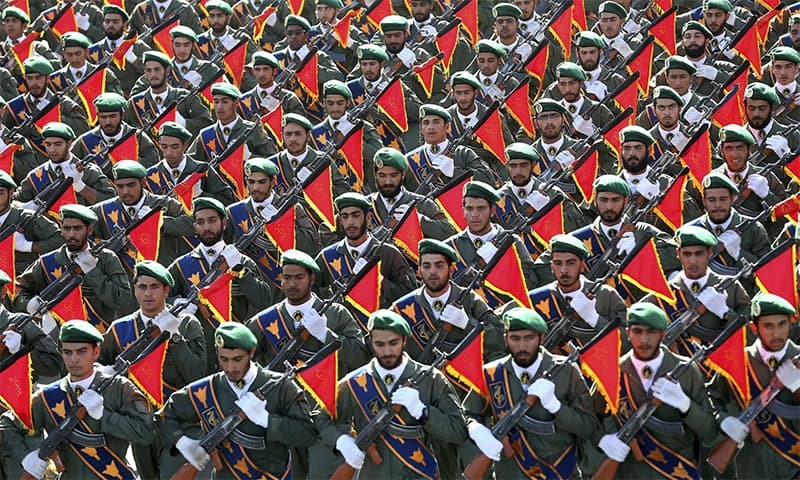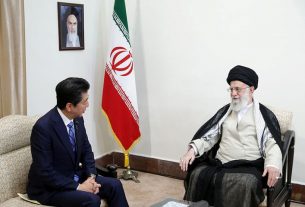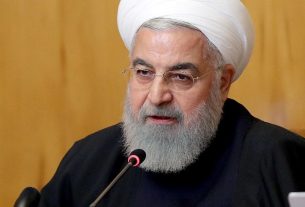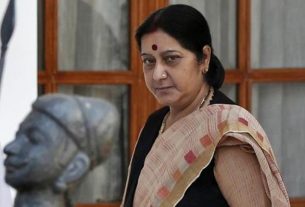President Donald Trump on Monday announced that the United States is designating Iran’s elite military force, the Islamic Revolutionary Guard Corps (IRGC), a terrorist organisation.
Trump said in a statement that the “unprecedented” move “recognises the reality that Iran is not only a State Sponsor of Terrorism, but that the IRGC actively participates in, finances, and promotes terrorism as a tool of statecraft”.
Soon after Washington declared the elite unit a terrorist group, US Secretary of State Mike Pompeo warned all banks and business of consequences to dealing with Iran’s Revolutionary Guards.
“Businesses and banks around the world now have a clear duty to ensure that companies with which they conduct financial transactions are not conducted with the IRGC in any material way,” he told reporters.
It is the first time that the US has designated a part of another country as a terrorist organisation.
The designation imposes sanctions that include freezes on assets the Islamic Revolutionary Guard Corps may have in US jurisdictions and a ban on Americans doing business with it.
Iran has threatened to retaliate for the decision.
Tit for tat response
In response to the US move, Iran’s Supreme National Security Council declared the US a “state sponsor of terrorism” and US forces in the region “terrorist groups”, state media reported.
In a statement carried by the official news agency IRNA, it said the move was in response to Washington’s “illegal and foolish act” of designating Iran’s Revolutionary Guards a terrorist organisation.
Iranian Foreign Minister Javad Zarif also condemned the move as a “a(nother) misguided election-eve gift to [Israeli PM Benjamin] Netanyahu”.
“A(nother) misguided election-eve gift to Netanyahu. A(nother) dangerous US misadventure in the region,” he said in a tweet.

The impact
The designation allows the US to deny entry to people found to have provided the Guard with material support or prosecute them for sanctions violations. That could include European and Asian companies and business people who deal with the Guard’s many affiliates.
It will also complicate diplomacy. Without exclusions or waivers to the designation, US troops and diplomats could be barred from contact with Iraqi or Lebanese authorities who interact with Guard officials or surrogates.
The Pentagon and US intelligence agencies have raised concerns about the impact of the designation if the move does not allow contact with foreign officials who may have met with or communicated with Guard personnel. Those concerns have in part dissuaded previous administrations from taking the step, which has been considered for more than a decade.



